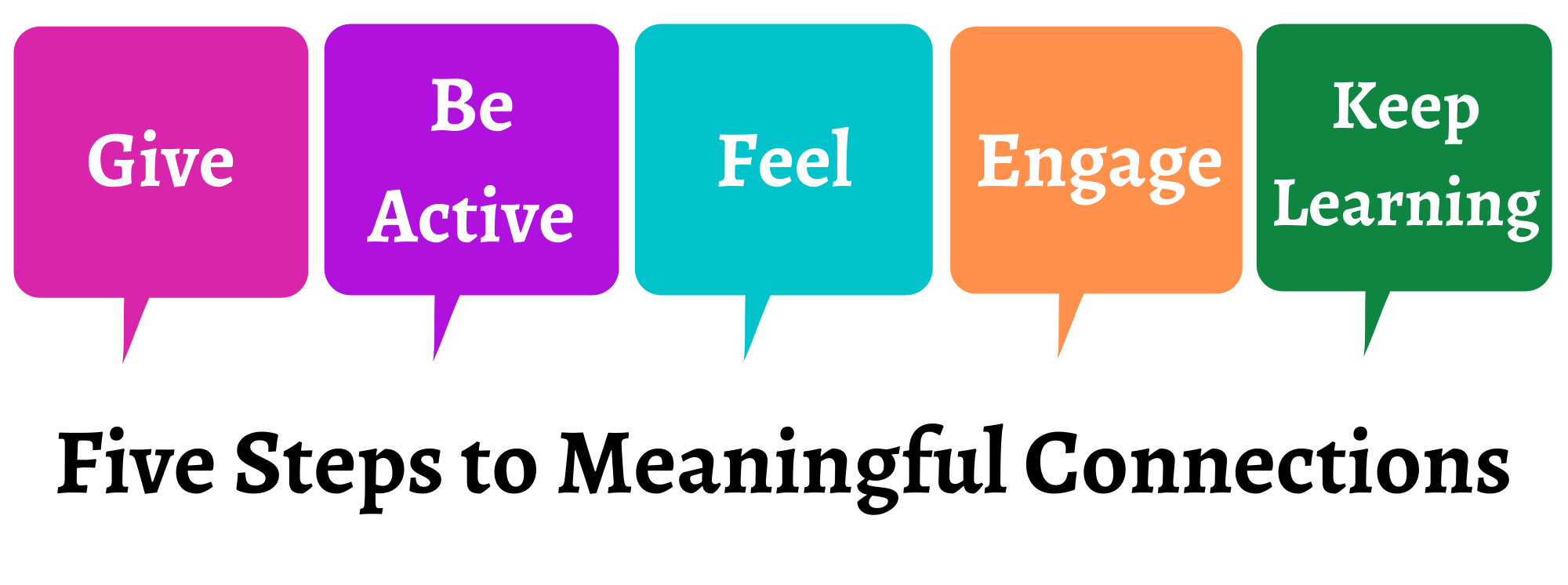
The below five simple actions and ideas are designed to assist you in connecting more deeply with yourself, and those around you. This article was published by the Institute of Positive Education and is very relevant as we begin to move out of COVID restrictions and start to rebuild connections with those around us.
1. Give
Put your device down – disconnect to reconnect. Invest in others through your time and attention.
Eminent cognitive scientist Daniel Levitin has identified that increased connectivity, communication and information have loosened boundaries between work and rest and have further increased demands on our attention.
‘Role overload’, refers to burnout from trying to do too many things at once and attempting to meet the many demands of work and life. A result of this may be ‘cognitive overload’, which lessens our ability to gain perspective. Being in this state has many negative effects on our mental and physical health. Our ability to plan and organise, make decisions, think creatively and solve problems, control our emotions, resist temptations and empathise with others are all greatly affected (Carter, 2016). Essentially, ‘cognitive overload’ fundamentally impairs our ability to function effectively. So to help avoid this state, why not put your device down, and create some head space? Then we can observe how we connect, and with who or what.
2. Be Active
Slow down, move mindfully and engage your breath.
As we all know, our access and exposure to more and more complex information and communication mediums can make us feel like we’re drowning in data. Taking time to live in the present moment, to move slowly and breathe, will result in a more conscious approach to life.
Therefore, we are asking you avoid the ‘go-go-go’, and consider how you can ‘slow-slow-slow’. Take time to slow down, engage your breath and reengage with your body and mind. This can have profound effects on our nervous system, allowing us to step out of our sympathetic response (fight or flight) and into a para-sympathetic response (rest and restore). This has powerful flow-on effects that impact our ability to be present, to be more effective communicators, and to be consciously compassionate teachers and care-givers.
3. Feel
Savour human contact (When permitted due to Social Distancing). A 10-second hug is all it takes to lift your mood. Learning to savour positive experiences of the past, present and future is a valuable skill for children to learn. Research shows that people who are experiencing depression still experience positive emotions, however these feelings are less frequent and more fleeting. Connecting with someone by savouring a 10 second hug can help to boost your immune system, increase levels of oxytocin (‘bonding’ hormone), and reduce cortisol (stress hormone) levels.
4. Engage
Do you see what I see? Connect with one other person and lean into a new perspective. Stepping back and gaining perspective is a complex skill. First, we must be aware that there are other valid ways of seeing the world (problems, situations, and so on); then we must be willing to consider another perspective and be able to view the world through that imagined perspective. When we do this, we are opening ourselves up to greater self-awareness, developing the ability to think of, relate to and feel empathy for others. Connecting with others and sharing new perspectives helps us be more accepting of others.
5. Keep Learning
Celebrate and share a story about overcoming a challenge to bring hope and connection with others.
Research has shown that the ability and opportunity to share your challenges with others can have a positive impact on individual wellbeing, including increased subjective wellbeing, positive affect and greater life satisfaction. (Quoidbach et al, 2010; King, 2001). Sharing our stories of overcoming challenges and allowing ourselves to sit in a place of vulnerability with each other can inspire hope and help us move closer to our shared desire of being loved, supported and connected.
With these five simple, evidence based actions, we encourage you to connect more deeply with yourself, reach out to others, and embrace the world around you. Together we can continue to increase awareness about mental health and mental illness, and embrace the shared responsibility that we have in creating and sustaining a mentally healthy society.
Tom Atyeo
Wellbeing Coordinator